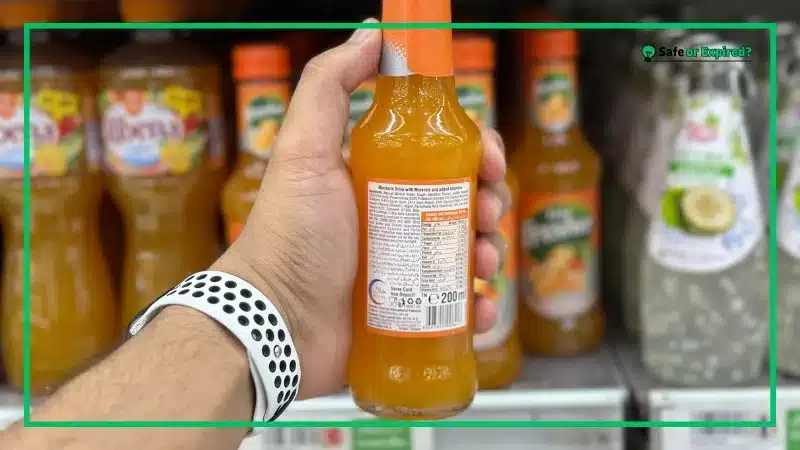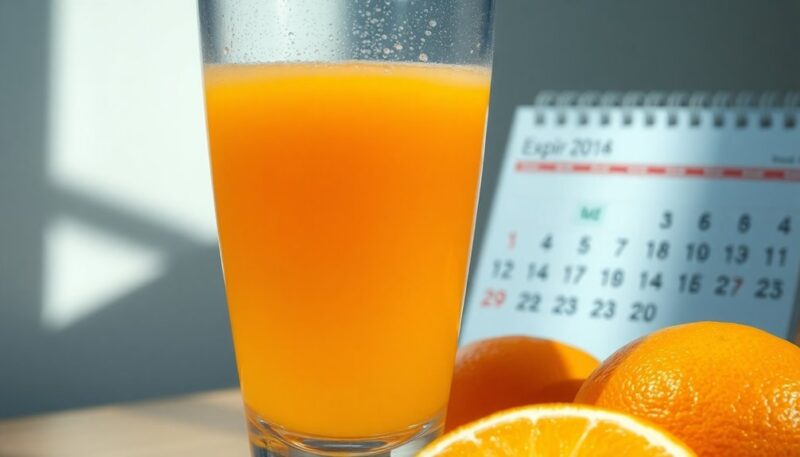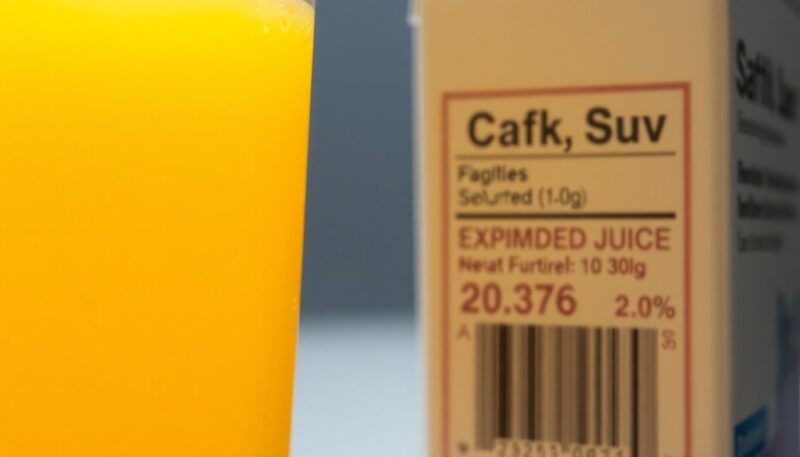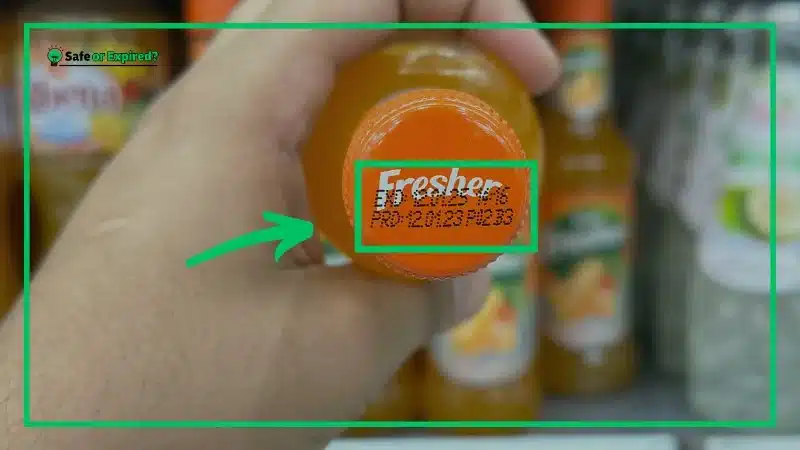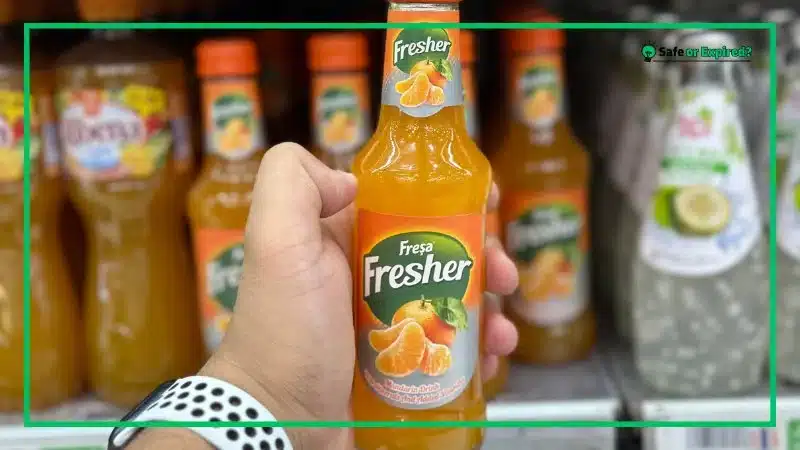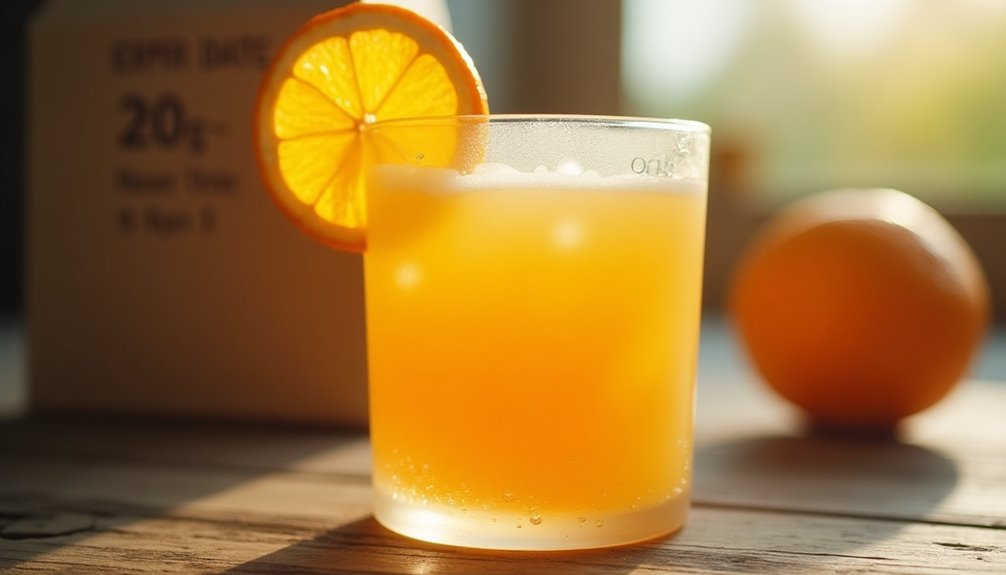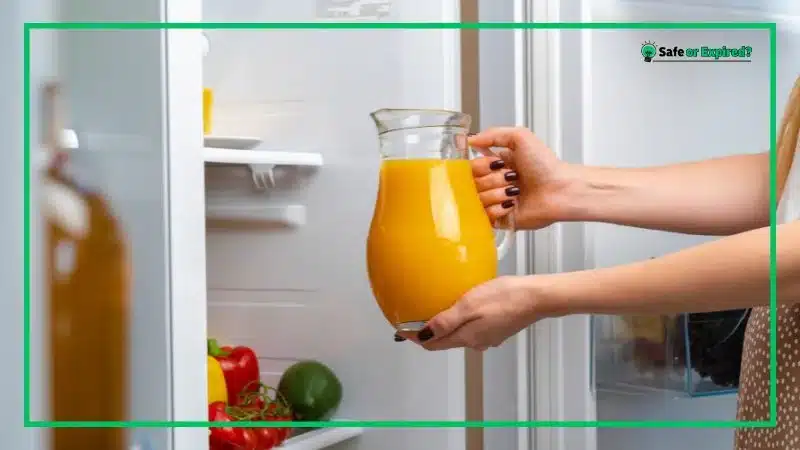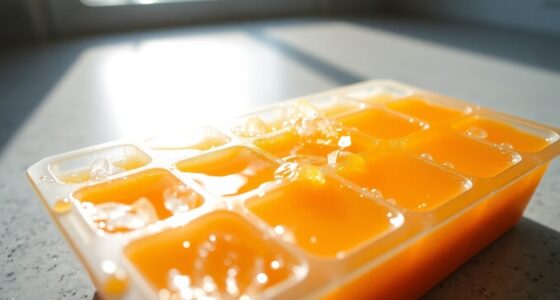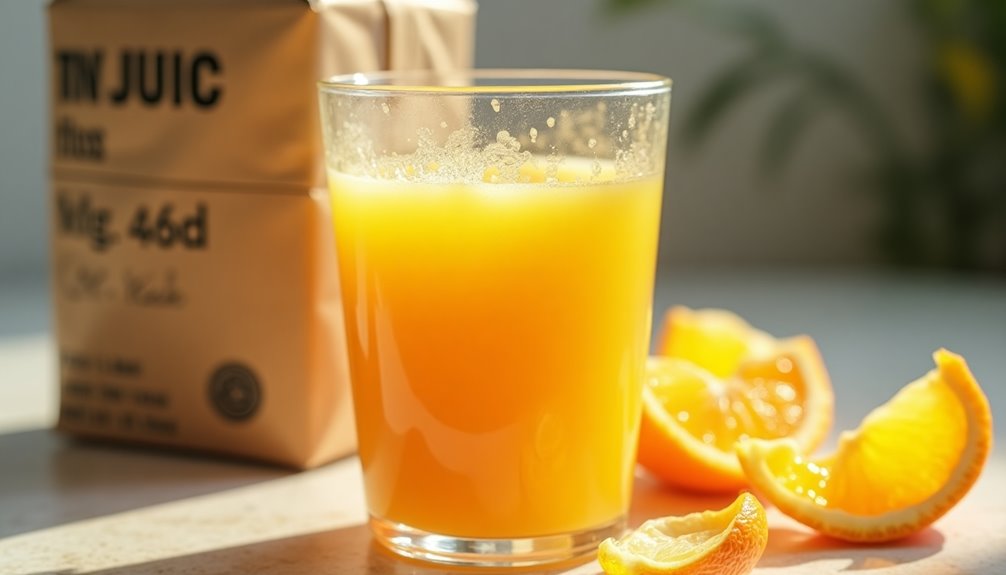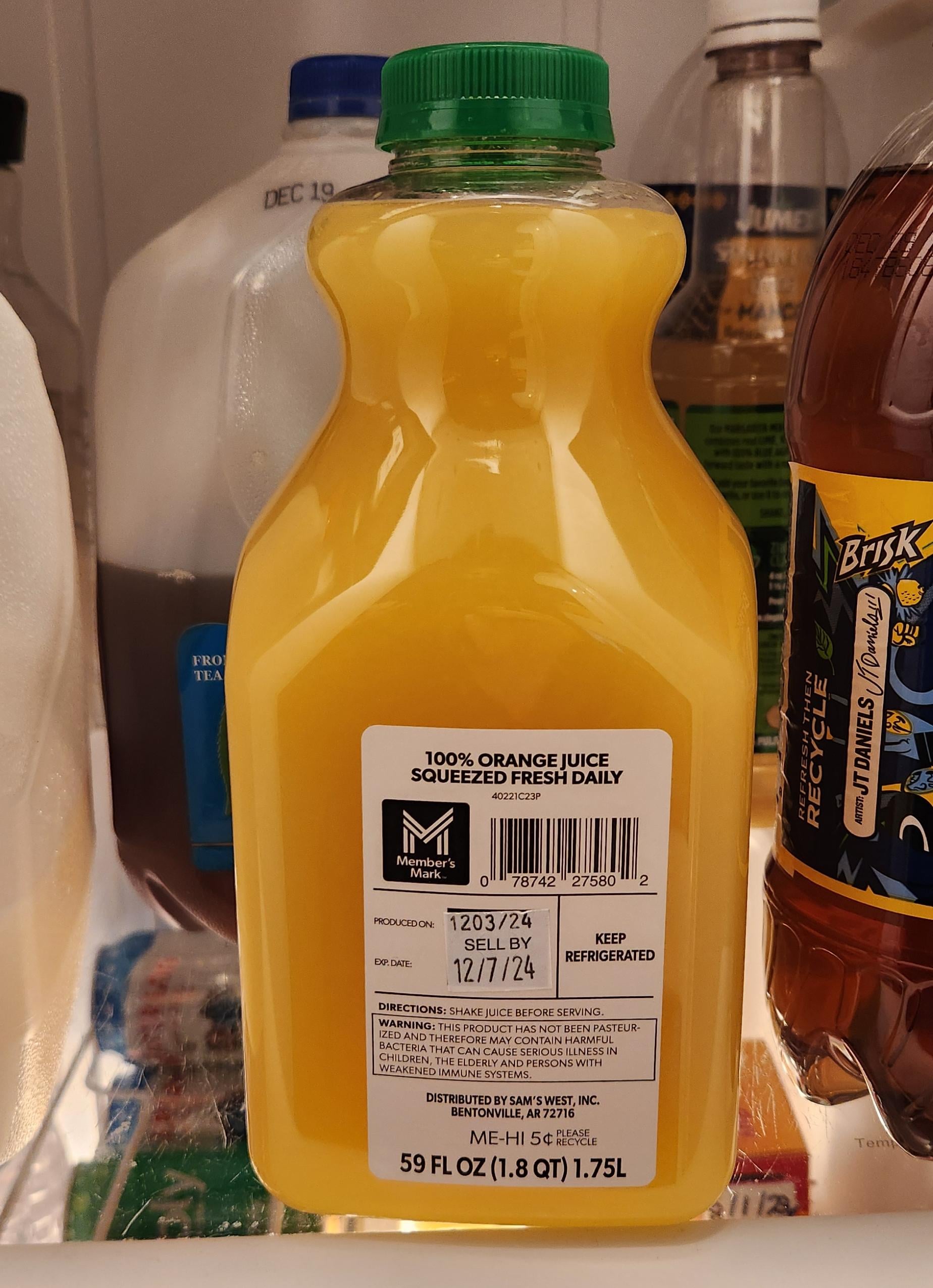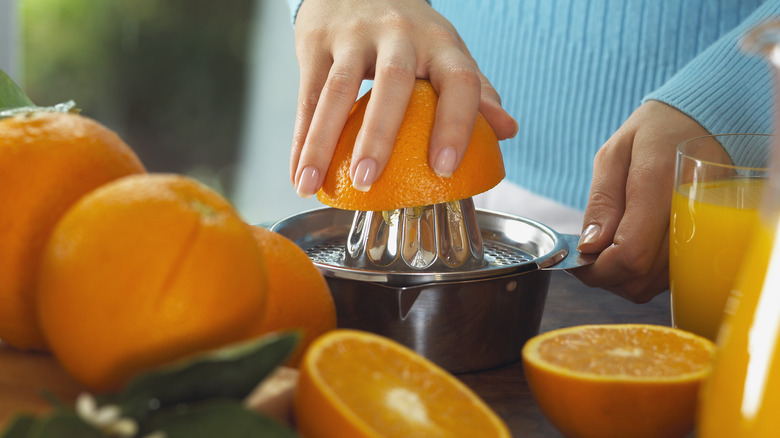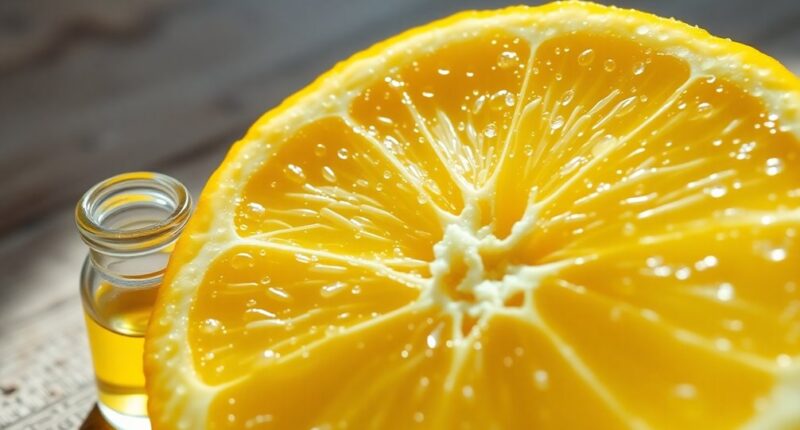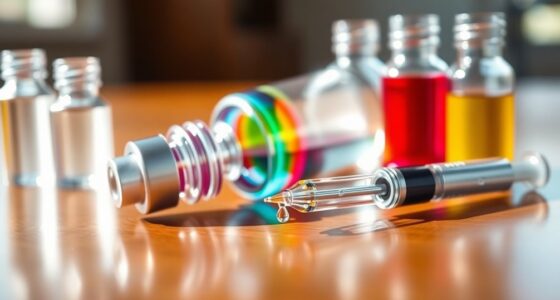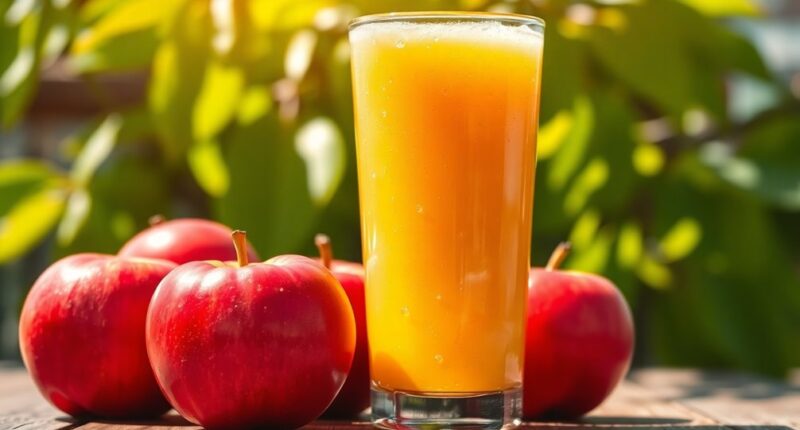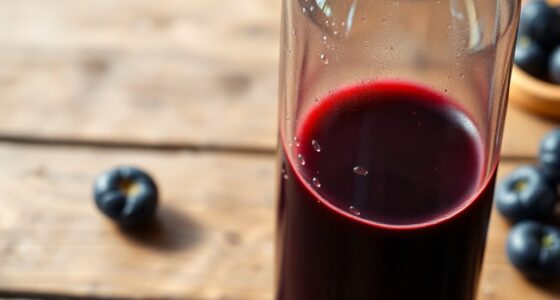How Good Is Orange Juice After Expiration Date
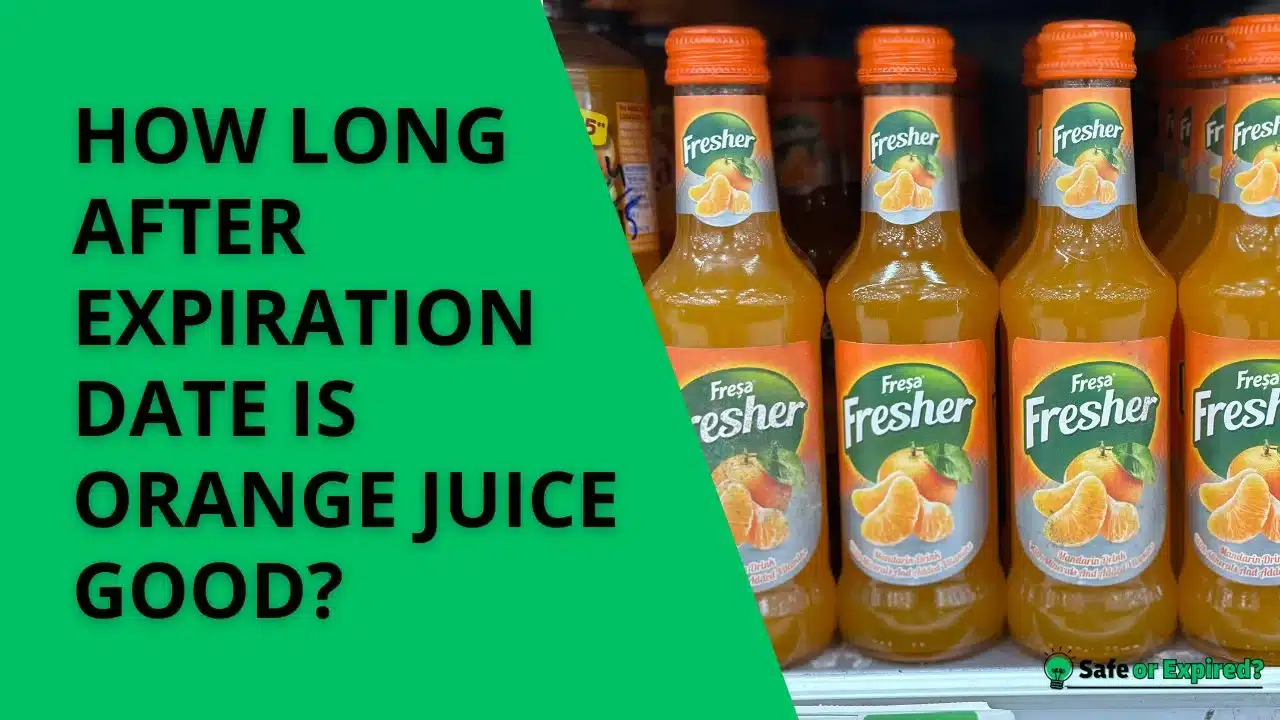
Imagine this: a bright Sunday morning, the sun streaming through your kitchen window. You reach for a carton of orange juice in the fridge, the promise of a refreshing start dancing in your mind. But then, a moment of pause. Your eyes catch the date stamped on the side: "Best By" yesterday. A familiar question pops up: is it still good? Can you still enjoy that sunshine in a glass?
This question isn't just a fleeting thought for many. It’s a common dilemma, leading to both unnecessary food waste and potential health concerns. This article dives deep into the truth about orange juice and its "expiration" date, separating fact from fiction and providing practical guidance for consumers.
Understanding "Expiration" Dates
The first, and perhaps most crucial, point to understand is that the dates stamped on food products are not always as straightforward as they seem. The terms "Best By," "Use By," and "Sell By" often cause confusion. These dates are primarily about quality, not safety, according to the USDA (United States Department of Agriculture).
They represent the manufacturer's estimate of when the product will be at its peak flavor and texture. After this date, the food might not taste as good, but it’s not necessarily unsafe to consume. This distinction is particularly important when it comes to products like orange juice.
What Happens to Orange Juice After the "Best By" Date?
Once the "Best By" date passes, several changes can occur in orange juice. The most noticeable is often a change in flavor. The juice might lose some of its brightness and develop a slightly more acidic or fermented taste. This is due to natural degradation processes and the activity of microorganisms that might be present, even in pasteurized juice.
Vitamin C content can also decrease over time. Vitamin C, being a water-soluble vitamin, is susceptible to oxidation and degradation when exposed to air and light. The rate of this degradation depends on factors like storage temperature and the type of packaging.
Furthermore, color changes can occur. Orange juice might become slightly darker or more brownish as it ages. This is often due to the Maillard reaction, a chemical reaction between amino acids and reducing sugars that is accelerated by heat and time.
Factors Affecting Orange Juice Spoilage
Several key factors influence how quickly orange juice spoils and how long it remains safe to drink after its "Best By" date. Storage temperature is paramount. Orange juice should always be refrigerated promptly after opening.
According to the FDA (Food and Drug Administration), storing perishable foods at temperatures above 40°F (4°C) can significantly increase the risk of bacterial growth. Proper refrigeration slows down enzymatic reactions and microbial activity, extending the shelf life of the juice.
The type of packaging also plays a role. Cartons, plastic bottles, and glass bottles offer different levels of protection against oxygen and light. Orange juice in glass bottles, for example, may degrade slightly faster if exposed to direct sunlight.
Pasteurized vs. Unpasteurized Juice
The pasteurization process significantly impacts the shelf life of orange juice. Pasteurization involves heating the juice to a specific temperature for a certain period to kill harmful bacteria and extend its shelf life. Pasteurized orange juice generally lasts much longer than unpasteurized juice.
Unpasteurized, or "fresh-squeezed," orange juice is more susceptible to spoilage because it contains live microorganisms. The CDC (Centers for Disease Control and Prevention) recommends that pregnant women, young children, the elderly, and people with weakened immune systems avoid consuming unpasteurized juice due to the risk of foodborne illness.
How to Tell If Orange Juice Is Spoiled
Relying on your senses is the best way to determine if orange juice has gone bad. First, give it a good sniff. If the juice smells sour, fermented, or off in any way, it’s best to discard it. Fresh orange juice should have a pleasant, citrusy aroma.
Next, pour a small amount into a glass and observe its appearance. If the juice looks significantly darker than usual, contains mold, or has a strange texture (e.g., slimy or curdled), it’s likely spoiled.
Finally, take a small sip. If the juice tastes sour, bitter, or otherwise unpleasant, discard the rest. It's always better to err on the side of caution when it comes to food safety. If you have any doubt, throw it out.
What About the "Floaties"?
Many people are concerned when they see pulp or sediment at the bottom of an orange juice carton. These "floaties" are perfectly normal and are simply bits of fruit pulp that have settled. They are not an indication of spoilage.
In fact, some people prefer orange juice with pulp, as it adds texture and fiber. However, if the floaties look significantly different than usual (e.g., moldy or slimy), that could be a sign of spoilage.
Minimizing Waste and Maximizing Enjoyment
To minimize waste, consider buying smaller containers of orange juice if you don't drink it frequently. This ensures that you're more likely to finish the juice before it spoils. Always store orange juice in the refrigerator and keep the container tightly sealed.
Pay attention to the "Best By" date, but don't automatically discard the juice as soon as that date passes. Use your senses to determine if it’s still good. And consider buying pasteurized juice for a longer shelf life.
Another good tip is to freeze orange juice that you know you won't be able to consume before it spoils. Frozen orange juice can be used in smoothies, popsicles, or even thawed and used as a refreshing beverage. Just be aware that freezing may slightly alter the texture of the juice.
Conclusion: A Refreshing Perspective
The question of whether orange juice is safe to drink after its "expiration" date is a nuanced one. While the "Best By" date provides a guideline for optimal quality, it's not a strict deadline for disposal. By understanding the factors that influence spoilage, using your senses, and practicing proper storage techniques, you can make informed decisions about whether to enjoy that glass of orange juice or bid it farewell.
So, the next time you find yourself facing that carton with a slightly past date, take a moment to assess. Trust your senses, and remember that a little knowledge can go a long way in reducing food waste and ensuring a refreshing, and safe, start to your day. The sun is still streaming through the window, after all, and the promise of that citrusy zest might still be within reach.
